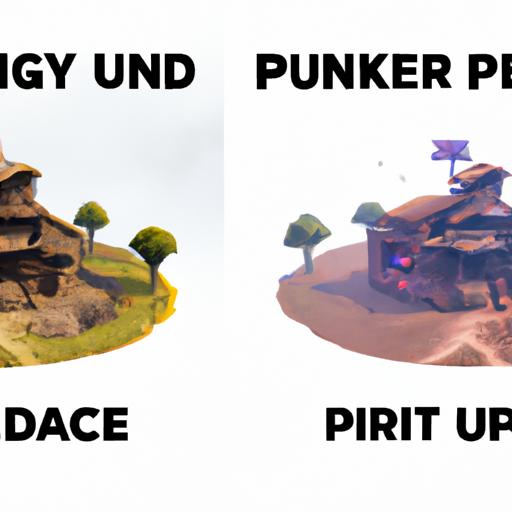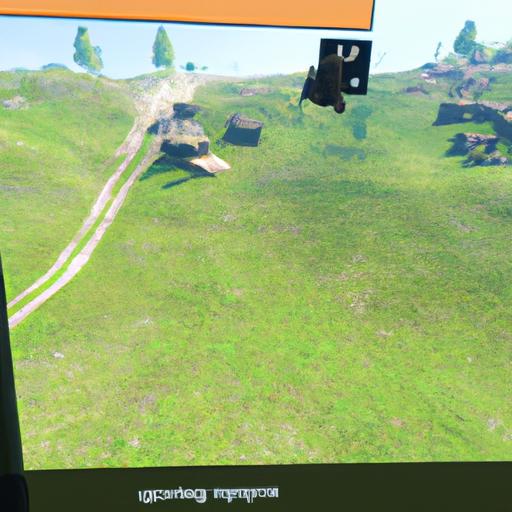PlayerUnknown’s Battlegrounds, better known as PUBG, was once one of the most popular battle royale games in the world. Developed by PUBG Corporation, a subsidiary of Bluehole, the game was released in March 2017 and quickly gained a massive following. However, in recent years, PUBG has seen a significant decline in popularity, with many players abandoning the game for other titles. In this article, we will explore what happened to PUBG and why it lost its place as the king of the battle royale genre.
The Rise and Fall of PUBG

Competition from other battle royale games, such as Fortnite, led to PUBG’s decline in popularity
PUBG’s initial success was unprecedented, with the game selling over 50 million copies by June 2018. The game was praised for its realistic graphics, smooth gameplay, and unique battle royale mechanics. However, PUBG’s success was short-lived, and the game started losing players to other popular titles like Fortnite and Apex Legends.
One of the reasons for PUBG’s decline was the game’s poor optimization and technical issues. PUBG’s open-world environment and realistic graphics required a powerful computer to run smoothly, making it difficult for players with lower-end hardware to enjoy the game. Moreover, the game was plagued with bugs, glitches, and server issues that often caused frustration and ruined the player experience. As a result, players started looking for alternatives that offered a smoother and more stable experience.
Competition from Other Battle Royale Games

Technical issues and bugs in PUBG affected player experience and perception of the game
Another factor that contributed to PUBG’s downfall was the rise of other popular battle royale games like Fortnite and Apex Legends. These games offered similar gameplay mechanics but with added features that made them more appealing to players. Fortnite, for example, introduced building mechanics that allowed players to create structures and fortifications, adding a new layer of strategy to the game. Apex Legends, on the other hand, introduced unique characters with special abilities, which made the game more diverse and exciting.
In contrast, PUBG failed to innovate and introduce new gameplay elements that could keep players interested and engaged. The game’s slow pace and lack of variety made it less appealing to players who were looking for more excitement and action. As a result, many players switched to other battle royale games, which offered more features and a better overall experience.
Technical Issues and Bugs

PUBG’s lack of innovation and updates failed to keep up with player demands for new content and features
PUBG’s technical issues and bugs were another significant factor that contributed to its decline. The game was notorious for its poor optimization, with even high-end computers struggling to run the game smoothly. Moreover, the game was plagued with bugs and glitches that often made the game unplayable. These issues not only affected the player experience but also damaged the game’s reputation and perception among the gaming community.
PUBG Corporation tried to address these issues by releasing regular updates and patches, but these efforts were often too little too late. By the time the issues were resolved, many players had already abandoned the game for other titles. Furthermore, the game’s reputation for technical issues and bugs made it less appealing to new players who were considering trying the game. As a result, PUBG’s player base continued to decline, and the game lost its place as the king of the battle royale genre.
Lack of Innovation and Updates
Another reason for PUBG’s decline was its failure to keep up with player demands for new content and features. While other battle royale games like Fortnite and Apex Legends regularly introduced new gameplay elements, skins, and challenges, PUBG remained largely stagnant. The game’s developers failed to innovate and update the game adequately, leading to player boredom and disinterest.
Moreover, PUBG’s monetization strategy was also questionable, with the game charging players for in-game items that had little impact on the gameplay. This approach led to accusations of the game being “pay-to-win” and turned players away from the game.
Future of PUBG
Despite its decline in popularity, PUBG still has a loyal player base, and the game’s developers are working to revitalize the game. PUBG Corporation has released several updates in 2021, including a new map and gameplay improvements. The company has also announced its plans to release a new game called PUBG: New State, which promises to offer new gameplay mechanics and features.
However, the question remains whether PUBG can regain its former popularity and compete with other battle royale games. The battle royale genre is highly competitive, with new games entering the market every year. PUBG needs to innovate and update regularly, introduce new gameplay elements, and improve its optimization and technical issues to stand a chance of regaining its former glory.
In conclusion, PUBG’s decline in popularity can be attributed to a combination of factors, including technical issues, lack of innovation and updates, and stiff competition from other battle royale games. While the game’s developers are making efforts to revitalize the game, it remains to be seen whether PUBG can regain its former popularity and compete with other battle royale games. Nonetheless, PUBG remains a beloved game for many players, and it will always hold a special place in the history of the battle royale genre.
- words)*
Pubgfact.com – Your source for all things PUBG!